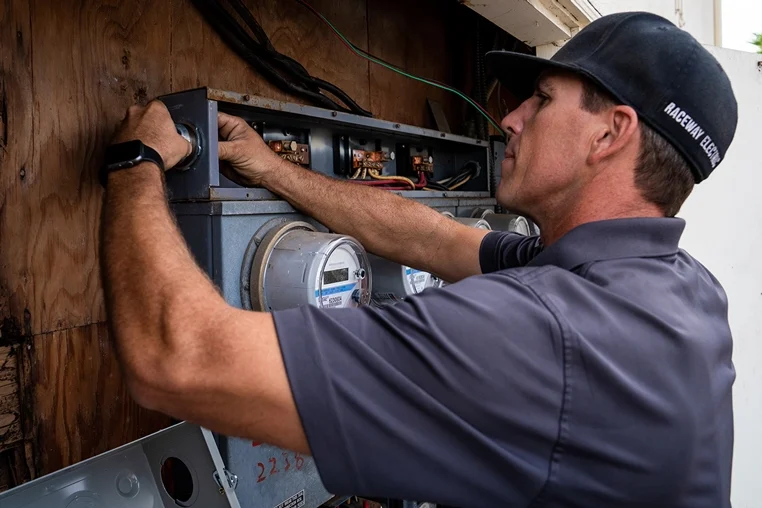Electrician Licensing
iowa Electrician: How to get certified and licensed in IA
Electrician Licensing
Iowa electrician license:
Everything you need to know
Are you ready to offer electrical services? You can be a key resource for homeowners and businesses. Whether you become an electrician or start your own business, you need an Iowa electrical license. In this guide, you will learn about the education and job requirements for earning your license.
Does Iowa require an electrical license?
Yes, you need an Iowa electrical license.
What are the different types of electrical licenses in Iowa?
There are different levels of the Iowa electrical licenses: apprentice, journeyman, and master electricians.
As an apprentice electrician, you must apply through the Iowa Department of Public Safety’s website. Your projects will vary based on your employer. You’ll learn how to work on electrical wiring, lighting installation, and other general electrician tasks. The average pay for an apprentice electrician in Iowa is $15.37 per hour.
After about four years, you can apply for a Class A Journeyman license. You’ll continue to hone your skills and you can work unsupervised. You’ll also learn how to draw electrical plans. The average pay for a journeyman electrical license in Iowa is $26.52 per hour.
After 2000 hours of training, you can apply for your master electrician license. You must pass an exam. Then, you can train new electrician and bid on projects that require laying out complex electrical plans for homes and other buildings. The average pay for a master electrician in Iowa is about $30.22 per hour.
How to get an electrician license in Iowa
To become an electrician in Iowa, you need to attend school. Many technical colleges in Iowa with electrician programs exist, such as Dubuque Electrical JATC and Southwest Iowa Electrical JATC. Most programs will only take a couple of semesters to complete. During this time, you also can buy basic tools, like measuring tape and wire cutters.
Call the financial aid office at the schools to learn about your funding options. Most schools will cost between $3,500 and $4,500 per semester. Some schools offer classes online. However, most classes will require hands-on learning. To get into an electrician program, you’ll need a high school diploma or GED. You also should know basic math and Algebra.
The apprenticeship will provide opportunities for you to learn basic technical skills. For most apprenticeships, the company will want you to commit to full-time hours.
You will need to pass a test to receive your license, and the price of the license will vary, depending on the time of year and the type of license.
Should I join an electrician union in Iowa?
There are benefits to joining an electrician union, such as vacation pay, sick pay, and a pension. You also often have access to higher wages. Some of the electrician unions in Iowa include IBEW Local 45 and IBEW Local 288.
How to use your electrician license to get a job
To find a job, network with school instructors, your boss at the apprenticeship, and your fellow electrician apprentices. You can also search online job boards and talk to representatives from electrician unions.For the interview, dress professionally and bring a copy of your resume.
Electrician insurance in Iowa
It’s likely for you to get injured while working with electricity. You need insurance in case of an accident or some other unfortunate event. The company employing you will carry liability insurance for you. When you get your own business, it’s very important for you to invest in liability insurance.
Electrician industry trends
Trade shows are an effective way to stay on top of electrical industry trends. There are plenty of shows nationwide, including the Housecall Pro event in New York City. You can travel to St. Louis for the Independent Electrical Contractors show or check out another convention in the country.
Is my license only valid in Iowa?
Here’s a full list to see if your Iowa electrical license is valid in other states. If you misplaced your card or changed your name or address, please contact the state licensing board.
How often do I need to renew my electrical license in Iowa?
You must renew your Iowa electrical license every three years. During that time, you must complete continuing education courses. Iowa has a three-year cycle system for electrical licenses. The renewal cost is the same as the cost of a new license.

Other industry licenses

Other industry licenses
LEARN FROM THE PROS
Helpful content for the trades
Explore our collection of helpful articles written by top experts in their field to seasoned pros in the field. Strengthen your field service knowledge and stay current on the latest industry topics and trends.